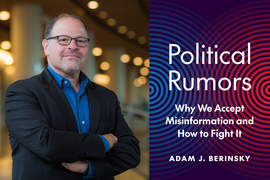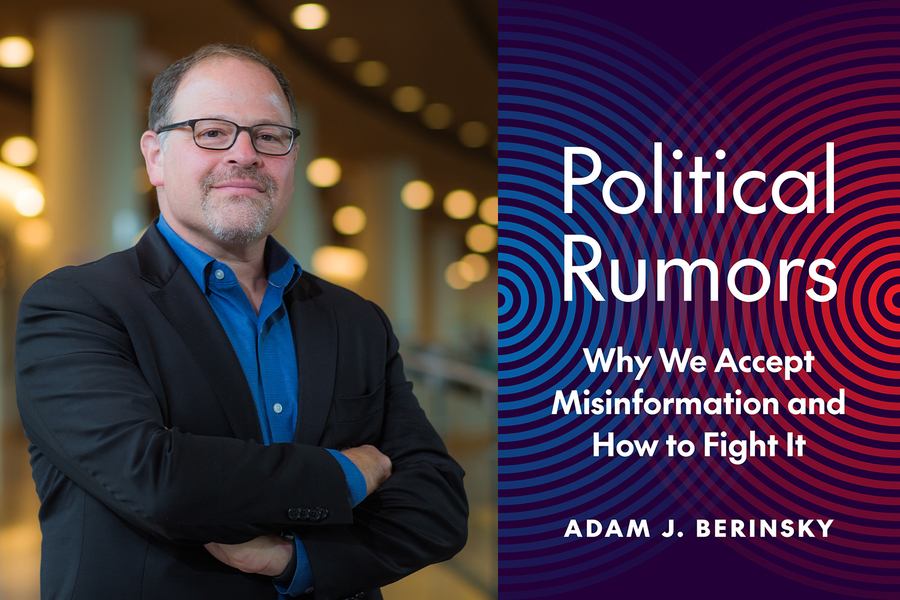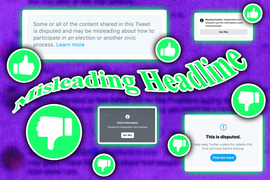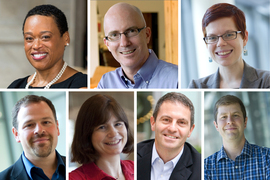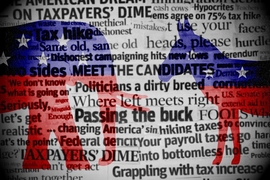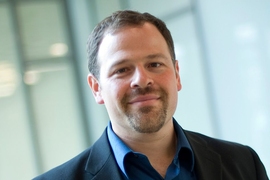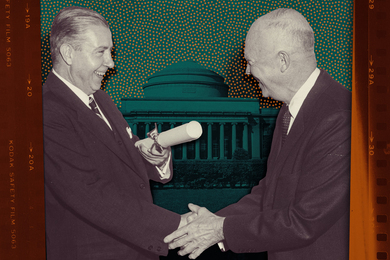Misinformation pervades U.S. politics.
The outcome of the 2020 presidential election is perhaps the most pressing case in point. Every serious-minded academic and legal inquiry into the subject — including two cases that came before the U.S. Supreme Court — has rejected former President Donald Trump’s assertion that he did not lose the election. Major media organizations now routinely label these statements “lies.” Yet Trump’s unfounded claims have gained wide traction among his followers.
“The evidence against claims that the 2020 election was stolen is overwhelming and clear,” writes MIT political scientist Adam Berinsky in a new book. “The persistence of false information like this is troubling for the prospects of our political system.”
To be sure, misinformation has long flooded U.S. politics, from the early days of the republic to conspiracy theories about the assassination of President John F. Kennedy; falsehoods about the terrorist attacks of September 11, 2001; and false claims that former President Barack Obama was not born in America.
But what Berinsky terms “weaponized mistruths” seem more prevalent than ever — or at least, are spread by some political elites more than ever. Finding a way to combat that is difficult.
“Coming to grips with misinformation is really, really hard,” says Berinsky, who is the Mitsui Professor of Political Science at MIT and director of the MIT Political Experiments Research Lab (PERL). He would know: Starting around 2010, Berinsky became one of the first political scientists to start running systematic experiments about in the subject.
Now Berinsky delves into the subject in his book, “Political Rumors: Why We Accept Misinformation and How to Fight It,” published today by Princeton University Press. In it, he explores misinformation research and remedies — but notes that each tactic chips away the problem, rather than suddenly solving it.
“I can’t claim there are a few easy things you can do to correct the problem,” Berinsky says. “But we shouldn’t throw up our hands and say, ‘Oh, this is hopeless.’ The key is to recognize the challenge and reframe our thinking about it.”
“Don’t just think about the message. Think about the messenger.”
When Berinsky started running surveys and experiments about political rumors in 2010, he was studying matters like the false belief that Obama was not born in the U.S. (which Republicans were more likely to believe) and the falsehood that the Sept. 11 terrorist attacks were an inside job (which Democrats were more likely to believe). In the process, Berinsky also discovered that not many people believe a lot of false political rumors, but most people believe at least one false rumor.
Berinsky’s own research suggests that people who accept political rumors genuinely believe them; at the same time, partisanship heavily influences what people are willing to believe. Still, the balance of all research has also convinced Berinsky that as a practical matter, reaching people who are undecided about falsehoods is essential.
“When I went into this, I was really interested in the believers, the people who accept these stories,” Berinsky says. “But over time I’ve come to realize we really need to worry about the people who have said they aren’t sure. … They also have the potential to undermine democratic functioning.”
One of Berinsky’s most influential findings focuses on how to set the record straight. Over many research projects, he and other researchers have found that simply providing accurate information to people from neutral fact-checking sources has little lasting effect. When the Obama administration was knocking down false claims about “death panels” in relation to the Affordable Care Act, or his birth certificate by appealing to neutral sources, it had only a limited and temporary effect.
On the other hand, when people receive information from a Republican correcting false statements that had been targeted at Democrats, that strategy has a stronger effect (on people from both parties). Thus it is much more effective when a political leader tells the truth to their followers, at the expense of their own self-interest.
“Don’t just think about the message,” Berinsky says. “Think about the messenger.” Or, as he writes in the book, “Turning partisanship on its head in service of correction, then, can help combat the spread of misinformation across citizens from all partisan stripes.”
Berinsky has also worked with several other researchers on numerous recent experiments about making news consumers aware of issues of false news and accuracy — especially when people are surfing through large amounts of online content. By issuing the right kinds of prompts at the right moments, some experiments have found, it is possible to alter the public’s perception of false news stories. Still, Berinsky notes that the effects of each such intervention are relatively modest, and people should adjust their expectations accordingly.
“We can move people’s views a couple of percentage points,” Berinsky says. “That’s good. If you take a bundle of interventions, maybe we can move it 5 or 6 points. That would be great.”
Why responsible politicians matter
As Berinsky readily notes, it is not easy to find politicians who will willingly speak out against their own perceived self-interest, even in service of the truth. In the case of the 2020 election, Berinsky adds, “Surely there were Republican politicians who knew that these [false statements] were not true and publicly were not willing, and still are not willing, to say, ‘This is completely false.’”
It can be debated how costly — or not — it would be for certain politicians to make those statements. Overall, though, significant evidence points to the powerful role that politicians play in shaping public beliefs. Misinformation is so difficult to combat because of the way it aligns with partisan interest — as a growing body of research shows — and fighting it is easier with responsible leadership.
“It’s not simply that people are being shallow,” Berinsky says. “It’s that politicians are not behaving in a responsible way. We shouldn’t only blame the people. We should blame the politicians who are spreading misinformation.”
Indeed, he adds, “If we’re looking for a lasting fix to the problem, it’s not that we can inoculate people against misinformation, or come up with a perfect way to correct for misinformation after the fact. What we need to do is reduce the misinformation coming from politicians. That’s easier said than done.”
“Political Rumors” has received praise from other scholars. Brendan Nyhan, a political scientist at Dartmouth College, calls it “the most comprehensive treatment to date of the prevalence of beliefs in false and unsupported claims, the reasons that people are vulnerable to them, and the challenges we face in trying to counter them.” The book is, he adds, “a crucially important examination of an issue of vital public concern.”
Berinsky himself suggests that he hopes readers will become more attuned to the dynamics of political rumors, the possible ways to combat them, and a sense of what is realistic, at a time when truth in politics has become so highly contested.
“Part of the solution is to say we should be hopeful about interventions that have systematic and small effects,” Berinsky says. “That would be good news.” He adds: “I do think we’re in a period where things are tough, but we’re not completely without hope.”
